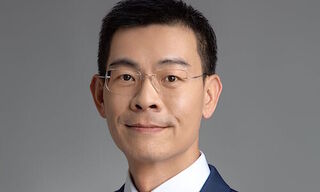Binance has published a list of ten «fundamental rights» for crypto users as part of a broader push to promote wide adoption by strengthening user protection.
The world’s largest crypto exchange published a list of rights with the intention of developing a global framework that «protects users without limiting growth and innovation».
«Crypto belongs to all of us,» Binance said in a statement. «But there's still work to be done if we want this breakthrough innovation to become part of our daily lives. Like seat belts in a car, a more regulated crypto market provides greater protections for everyday users.»
10 Fundamental Rights
The list of ten rights spans across various areas including some that conflict with existing regulations in major jurisdictions.
For example, the list includes the right for «every human being [to have] access to financial tools, like crypto, that allow for greater economic independence» – a right that cannot be fulfilled in some markets like China where a crypto ban is in place.
Also on the list are rights that are focused on privacy, access to secure exchanges and access to accurate information.
Public Declaration
According to Binance chief executive Changpeng «CZ» Zhao, the publication of the list is meant to make public the crypto exchange’s thoughts about the key values in this industry.
«We have been communicating with many regulators around the world. As a new industry, we like to share what we think is important for users,» Zhao said in a «Bloomberg» interview.
«We want to put this out there so everybody understands from our position what’s important. We already shared this – not in this format – with different regulators, and we want the users to know as well. We have a much more detailed framework that we share with regulators directly.»
China
On China, Zhao noted that the restrictions are much stronger now than in 2017 when the country last ramped up its crypto crackdown, citing examples like thoroughly blocked communications between Binance and its users.
«There’s really not an easy way, the blocks are very complete, very effective,» Zhao said. «So I don’t see any way that China users can continue to use crypto platforms like us in any reasonable fashion. I also don’t see the policies changing in the short term.»
Singapore
And on Singapore as a potential crypto hub, Zhao said it was still too early to tell given the nascency of the industry but highlighted other jurisdictions that have become increasingly favorable such as France, Dubai or the UAE.
«They all understand the importance of attracting crypto businesses and encouraging innovations in the space,» he said. «So there are multiple centers and hubs around the world now, which is very good for the industry.»



























